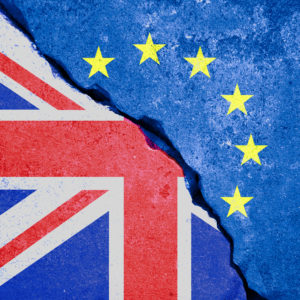June 23 will be a momentous one in British history. It is the day that Brits will decide whether to remain in the European Union or withdraw. The result will not be known until June 24.
That is also the day that Donald Trump, arguably the most reviled man in Britain, will descend on Scotland to reopen his revamped, opulent Trump Turnberry golf resort in Ayrshire, following a $289 million refurbishment.
For British Prime Minister David Cameron, the distraction could not come at a worse time. Polls have the decision on the future of Britain balanced on a knife edge. The only comfort the prime minister might take is that the Brits have been told to vote “leave” by Trump.
Well, that is not the way to sway the Brits. The reason there is even a movement to leave Europe is because the Brits do not like being told what to do by outsiders, whether European bureaucrats or American pols. Cameron, who has called Trump “an idiot,” might pick up some votes to stay in protest of the presumptive Republican presidential nominee.
Trump is so disliked in Britain that parliament even debated banning him. He is not banned, but for that debate even to take place shows the extent to which the public in Britain has taken against Trump.
Even the Scots have no love for Trump; although he could claim a special relationship with Scotland: his mother, Mary-Anne MacLeod, was a Scot.
Her son has developed not one, but two of his Xanadu-like golf resorts in Scotland, and has spent heavily in the country. But the Scots are wary of ostentation, braggadocio and extravagance. Like Cameron, the first minister of Scotland, Nicola Sturgeon, does not plan to meet with Trump.
But the official cold-shoulder does not mean that Trump will not get mega media, even though the future of Britain will just have been decided.
For British media, the event will be equivalent to the Loch Ness monster coming up from the deep, strolling over to Trump’s oceanside golf gaucherie and hitting a few balls.
Despite the Trump event, June 24 will be a momentous day in Britain.
The case for Britain staying in the European Union is a case for continued, anticipated economic growth, a role in shaping the future of Europe, and the international authority that Britain in Europe enjoys.
The case for leaving is more emotional, abstract, but more, I believe, deeply felt. It is also the English — as opposed to the Scots, the Irish and the Welsh — who feel most strongly about the European issue.
Back in the early 1960s, I was employed by the newspaper magnate Lord Beaverbrook to oppose Britain’s entry into the six-nation Common Market, which has evolved into the 28-nation EU, and I have followed the saga closely ever since. Incidentally, I came to believe Beaverbrook was wrong. Britain joined Europe in 1973.
The ostensible reason for Brits to vote against continuing membership in the EU is an argument over sovereignty and stultifying business regulation from Brussels, the seat of European governance. The latter is a dubious argument because Britain will continue to have to abide by European rules if it wants to trade with Europe — and certainly will because Europe is its main trading partner. Cameron argues that getting out will mean that Britain still has to live by the rules, but will have no role in making them.
The other big, emotional argument is immigration. Britain is absorbing about 350,000 immigrants a year and, under European open-frontier rules, is feeling the pressure in housing, jobs and social services. Getting out of Europe, it is hoped, will staunch the flow. But with so much of the world on the move, this may be hard to change.
The third anti-Europe force — and to my mind the most important — that drives the English Conservatives (much of Cameron’s own party is against him on Europe) is a primal, atavistic Englishness that loves its island isolation to the core of its being. It is as deep a nationalism as you can find, and you find it where you do not expect to find nationalism: among intellectuals like the classicist, former mayor of London Boris Johnson, who is leading the forces of exit, known as “Brexit.” Pericles and Churchill are his idols.

